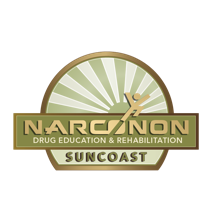Drug Addiction and Our “Quick-Fix” Society

Let’s look at the current drug and alcohol addiction epidemic from a different angle:
America has become the land of the “quick-fix.” We are the kings and queens of a fully stocked medicine cabinet, filled with magic pills to quickly take our headaches, heartburn, depression and various other physical and mental ailments away for a short amount of time. TV commercials, celebrities and magazine articles tell us these medications work. Our trusted doctors recommend and prescribe medication for virtually any kind of discomfort we may be experiencing.
What happened to figuring out what caused the pain to begin with, then handling the cause rather than the symptom (and what does Ibuprofen have to do with drug addiction, you may ask)?
Allow me to paint a scenario for you.
A teenage girl gets a headache and tells her mom. Mom gives her some Ibuprofen and the headache goes away. Two days later, the teenage girl gets another headache. She takes more Ibuprofen at the advice of her mother and again, the headache goes away. This cycle continues to the point that, years later, it has now become routine for her to take Ibuprofen whenever she feels the slightest onset of a headache (or any other bodily aches and pains for that matter). She doesn’t want to feel pain so she continues to temporarily fix it over and over again by taking Ibuprofen. She never even considers figuring out why these chronic headaches occur in the first place. She just simply doesn’t want to feel the pain and discomfort anymore. The bigger issue never even gets addressed (why are the headaches happening? dehydration? vision issues? stress from school?) because medication is so readily available to quickly and easily “fix” the problem. It has now become ingrained in the girl’s head that the daily use of medication to deal with pain is absolutely normal and acceptable.
Same girl, now a woman in her twenties, goes to the doctor because she has been feeling extremely depressed and has a bit of a drinking problem which has caused her quite a few issues in life. She can’t hold a job for very long, and has no confidence in herself or her abilities. She feels life is a big joke and happiness only exists at the end of a Disney movie. The doctor listens very intently to everything the woman says and tells her and prescribes some medication to “take the edge off.”
The woman trusts her doctor and knows medication has helped her in the past with pain, so she agrees to take them. She starts taking her medications as prescribed and feels better; she’s holding a job, has her own car, and is in a happy relationship. Slowly but surely, she becomes dependent on these medications and has started to believe without them she will never be happy or lead a normal life.
After some time, her tolerance to these medications rises and she needs higher amounts of each drug in order to continue being happy and focused. This cycle continues for years until (inevitably) the prescriptions no longer work for her. Even at their highest doses. In response to this, the doctor begins switching her medications around which leads to serious side effects that cause her to feel even more confused and depressed. She begins drinking again to deal with the resurfacing depression.

During a particularly bad bout of sadness (mixed with alcohol), her boyfriend hands her a little yellow pill and tells her that it will help her feel better. The Vicodin enters her system and she feels amazing. She has energy and a new-found excitement to live again! She continues taking the Vicodin, eventually getting to the point where she is now dependent on them to do well and feel well every day. She begins to fall deeper and deeper into her newfound addiction, lying to doctors about pain in order to receive prescriptions for it, buying it off of the street, etc. She is spending all of her time and money on her habit and eventually loses her job.
This cycle continues and produces many new problems in her life she doesn’t know how to solve. She falls more and more into a depression and is in a constant state of urgency to find more pills. She will pawn, rob, lie and steal to afford them at this point. And at the end of the day, the pain she had originally gone to the doctor for (all those years ago) is still there, within her, alive and kicking. Not one of those pills ever magically cured the larger issues at hand for her.
This scenario is all too common nowadays.
We have become a society so scared of feeling any kind of discomfort that, rather than taking time to figure out what is causing the pain and handling it, we are habitually choosing to take the quick route and slap a band aid on the issue for what we know will only be a temporary amount of time. This is a learned behavior we are passing on to the next generation and a mindset which can lead many to an eventual drug and alcohol addiction.
After going through addiction myself and now working in the field, I can attest to stories like this every single day. If the affliction is never properly addressed and handled, it will only get worse, no matter how many “band aids” are used. Getting to the bottom of each and every problem we experience may be difficult and time consuming, but crucial in securing the two things we human beings seek each and every day: permanent happiness and well-being.


